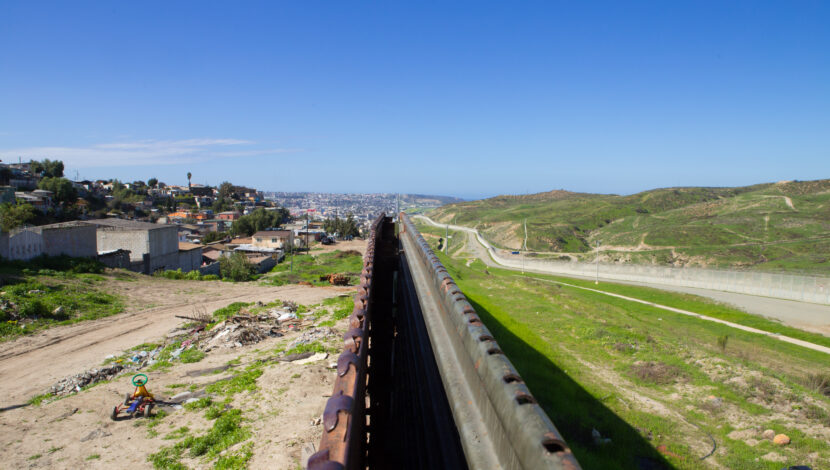The Unitarian Universalist Service Committee advances human rights through grassroots collaborations.
Secure the Border Act Endangers Migrating People at the U.S. Southern Border

By on October 16, 2023
Often fleeing from poverty and violence, migrating people take the grueling journey hoping for a new life of safety and opportunity. Unfortunately, they often encounter a different version of the peril they fled at the hands of our own government. If anti-immigrant government leaders have their way, things will be even worse for those attempting to access their legal right to seek asylum in the United States.
The past few years have been arduous for immigrants and their advocates at the U.S.-Mexico border. Under the guise of public health concerns during the COVID-19 pandemic, the Trump Administration revived Title 42 in March 2020. The law allowed the United States to expel people crossing the border from Mexico without honoring their right to seek asylum.
Though President Biden’s election offered a sense of hope for immigrant communities, conditions have continued to worsen. In May 2023, Biden’s administration ended Title 42. While many advocates praised its ending, they also expressed concerns that the Biden administration’s plans merely rehashed Trump immigration policies. This was proven true when the Biden Administration enacted its own Asylum Ban. These efforts were blocked by a Texas federal court, where the judge called the law “arbitrary and capricious.”
Texas Governor Greg Abbott—known for his anti-immigrant sentiments—has effectively made the border into a military zone. On the U.S. side of the Rio Grande River, armed troops are stationed amongst large orange buoys and shipping containers, all tangled in reems of barbed wire. In August 2023, the barriers claimed the lives of two people attempting to cross the river.
Members of Congress are still debating border security. The “Secure the Border Act” was passed in the House of Representatives in May 2023. The bill would require the Department of Homeland Security to hire more staff, upgrade agent technology, and resume construction of Trump’s border wall. Disagreements about border security funding reached a pitch that threatened a government shutdown, which would have negatively impacted millions of lives. Instead of addressing the inhumane conditions at the boarder, several conservative senators presented measures to keep border patrols active even in the event of a shutdown.
The Senate introduced a companion bill to the Secure the Border Act in September 2023 that is currently being debated. If the House and Senate versions are passed, the law would effectively end asylum in the United States and further harm those exercising their legal rights at the border. This would be a complete reimagining of the U.S. asylum system, causing even more pain to migrant communities. Human Rights First, the National Immigrant Justice Center, and the Women’s Refugee Commission released a joint analysis of the bill’s dangers. The organizations describe the act as “a patchwork of extreme anti-immigrant proposals that would shut down the U.S. asylum system and target families and children for the cruelest forms of mistreatment.” Here are a few of the proposed dangerous provisions:
- Migrating Families Forced to Stay in Mexico. Families would be barred from waiting on the United States side of the border while waiting for asylum.
- Ending Legal Protections for Children: There would be no legal protections for abandoned and neglected children at the U.S.-Mexico border. Unaccompanied children would face automatic incarceration.
- Blocking Essential Services: The Department of Homeland Security (DHS) would no longer provide funds to organizations that deliver key services to people crossing the border (e.g., transportation, legal services, shelter).
- Ending CBP Funding: Despite myriad problems, the CBP One app allows for more people to obtain immigration interviews and document vital demographic information. The Act’s proposal to defund this app and any future application used to “facilitate parole” of people migrating to the country would only make it that much harder for asylum- seekers.
- Deportations Without Due Process: Migrating people could be removed from the country without a proper hearing.
UUSC is working with our partners to ensure migrant populations are treated with dignity and respect. We encourage you to learn more about our partners such as National TPS Alliance and Fundación para la Justicia (Foundation for Justice) who are doing vital work in this area. Your donations are what allow UUSC to continue this important work , so please continue to give as you can.
Image credit: Adobe

